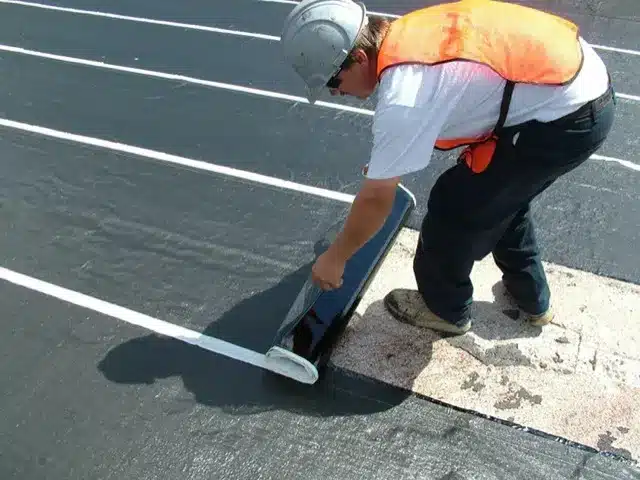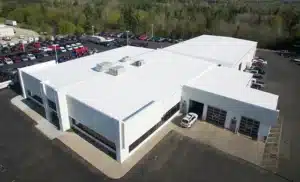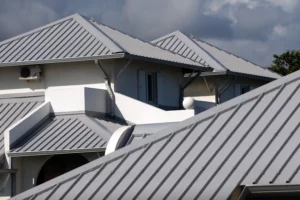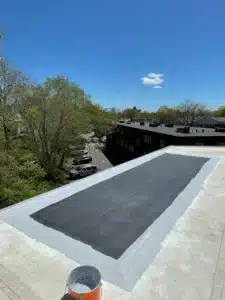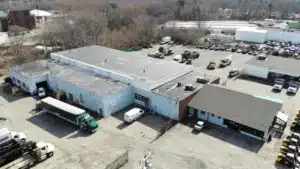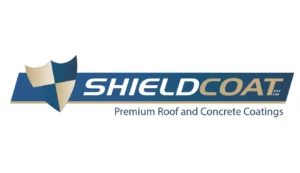
As a commercial property owner in Boston, one important aspect of your building’s construction is the type of roofing material used. In particular, flat roofs are a popular choice for commercial buildings due to their numerous benefits. In this article, we will explore the different types of materials used in commercial flat roofing and the advantages they offer.
The Benefits of Commercial Flat Roofing
Before delving into the various types of materials, it is essential to understand the benefits of choosing a flat roof for your commercial property. Here are some key advantages:
Durable and Long-Lasting
Commercial flat roofs are known for their durability and longevity. Unlike traditional sloped roofs, flat roofs are less likely to suffer from leaks or damage caused by wind and rain. With proper maintenance, a well-installed flat roof can last for decades.
Efficient Use of Space
One of the most attractive features of flat roofs is their ability to maximize usable space. Unlike pitched roofs that limit the interior space, a flat roof provides additional square footage that can be utilized for various purposes, such as rooftop gardens, outdoor seating areas, or solar panel installations.
Cost-Effective
Flat roofs are generally more cost-effective than pitched roofs. Not only are they easier and faster to install, but they also require less material. The reduced construction and maintenance costs make flat roofs a practical choice for commercial property owners.
Flexibility in Design
Flat roofs offer greater design flexibility compared to pitched roofs. They can be customized to accommodate different architectural styles, whether modern or traditional. Additionally, flat roofs allow for the installation of skylights and rooftop amenities, enhancing the overall aesthetic appeal of your building.
Now that we have highlighted the benefits of commercial flat roofing, let’s dive into the different types of materials commonly used in Boston:
EPDM (Ethylene Propylene Diene Monomer) Roofing
EPDM is a synthetic rubber roofing material known for its exceptional durability. It is resistant to UV rays, weathering, and extreme temperature changes, making it an excellent choice for Boston’s fluctuating climate. EPDM roofs are also highly resistant to tears and punctures, ensuring a long lifespan.
TPO (Thermoplastic Olefin) Roofing
TPO roofing is a single-ply membrane made of thermoplastic material. It offers excellent energy efficiency, reflecting sunlight and reducing the cooling load on your building. TPO roofs are also resistant to UV radiation, fire, chemicals, and high winds, making them a reliable option for commercial properties.
PVC (Polyvinyl Chloride) Roofing
PVC Roofing is another single-ply membrane that provides outstanding resistance to fire, chemicals, and high winds. It is energy-efficient, reducing heating and cooling costs. PVC roofs are known for their long lifespan and low maintenance requirements, making them a popular choice among commercial property owners.
Built-Up Roofing (BUR)
Built-up roofing, also known as tar and gravel roofing, has been a trusted choice for flat roofs for many years. It consists of multiple layers of bitumen, reinforcing fabrics, and surfacing materials. BUR roofs offer excellent waterproofing capabilities and durability. They are particularly suitable for buildings with heavy foot traffic or equipment on the roof.
Metal Roofing
Metal roofing systems, such as aluminum, steel, or copper, are gaining popularity in commercial construction. Metal roofs provide exceptional durability, fire resistance, and low maintenance requirements. They are also energy-efficient and can be coated with reflective material to enhance their efficiency further.
Conclusion
When it comes to choosing the right material for your commercial flat roof in Boston, it is crucial to consider factors such as durability, cost-effectiveness, design flexibility, and energy efficiency. Each type of material has its unique advantages and considerations. Consulting with a professional roofing contractor like Patriot Flat Roof Contractors can help you make an informed decision based on your specific needs and budget. With the proper material selection and installation, your commercial flat roof will provide long-lasting protection and contribute to the overall success of your business.
